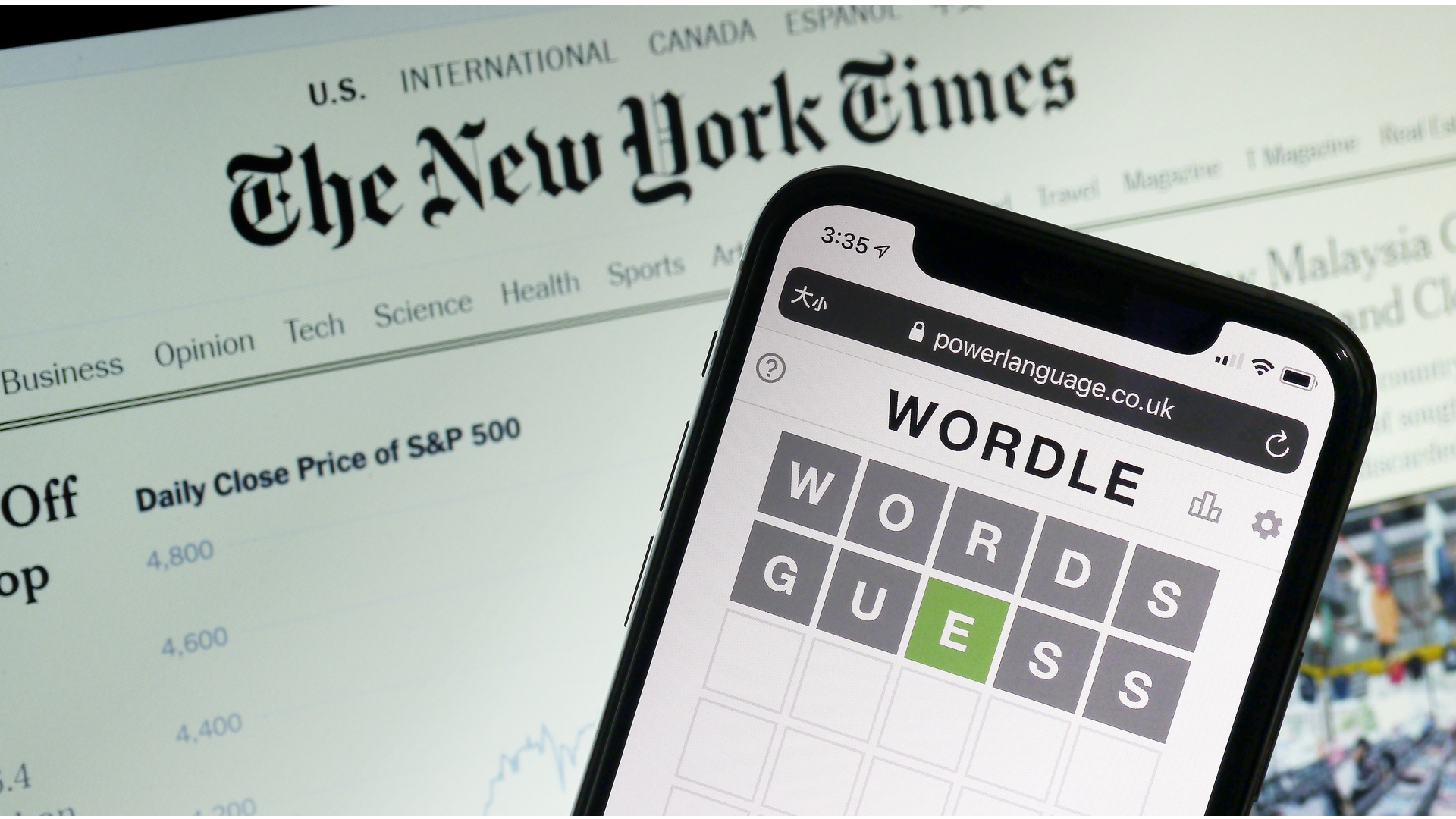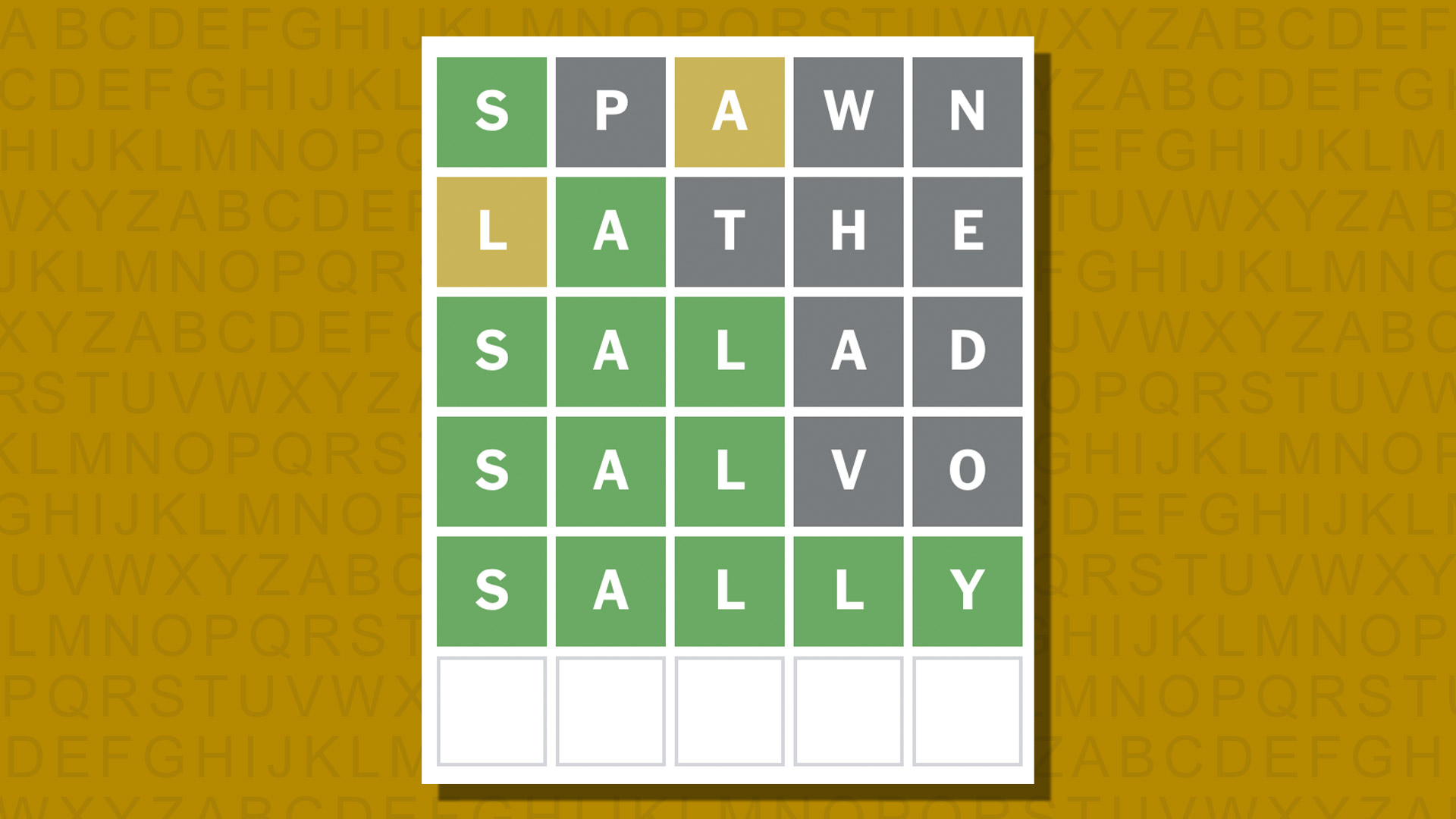Wordle will eventually run out of words. Here's what the NYT could do next
Wordle's editor reveals what could happen to the game in three years' time

Sign up for breaking news, reviews, opinion, top tech deals, and more.
You are now subscribed
Your newsletter sign-up was successful
What do AXIOM, BAYOU, FJORD, KAYAK, PARER and ZESTY all have in common? They've all been Wordle words, of course, appearing at some point during the game's first 1,000-and-a-bit days. All were pretty tough, so you're probably glad that they won't appear again – except that might now be about to change.
That's according to Tracy Bennett, Wordle's editor, who explored the idea of revisiting the past Wordle answers list during a TikTok chat last week (via Eurogamer).
Bennett was addressing a question from a user, who stated that "I'm worried that there's only about 2300 five-letter words. What are we going to do then? Please advise." That's a fair concern, and Bennett had several ideas for how to solve it.
"Yes, there are only 2300+ words left in the database," Bennett explained. "I am still adding words, though. I've added about 30 words and there are other words that haven't been added that could be added."
This is a reference to the fact that when Wordle was originally developed by Josh Wardle, he and his partner Palak Shah came up with a list of 2,315 answers, plus a wider collection of around 10,000 more that were accepted as guesses but which would never appear among the solutions.
When the NYT bought Wordle in 2022, Bennett and the team removed a few of those 2,315 solutions that were deemed to be too controversial or difficult, leaving 2,309. But she's also gone off-piste a few times since then, adding in GUANO, SNAFU, BALSA and KAZOO, none of which were on Wardle's initial list.
This is the first confirmation (that I've seen, at least) that Bennett has added in a few dozen more extra words; these will presumably appear at some point over the next few years, as we haven't had any other 'extras' since KAZOO on 19 June 2023.
Sign up for breaking news, reviews, opinion, top tech deals, and more.
It's worth noting that Bennett's assertion that there are "only 2300+ words left" is not strictly true, because we're now at game #1,019 (see my Wordle today column if you want to find out how I got on), so really there are only around 1,300 words left before Wordle runs out of solutions. Eeeek! That means the game could end sometime in November 2027. Double eeeek!
Fortunately, Bennett had some other suggestions for what the NYT could do as that date approaches: "One possibility is we could recycle old words at some point, like when we get close to the end. We could throw everything back in the pot and mix it up," she said. "Another thing we could do is maybe allow plurals. Wouldn't that be interesting? Or past tenses. So there are some options."
The case against plurals and past tenses
Let's take each of those in turn.
Repeating past answers definitely makes sense, not least because Wordle didn't explode in popularity until early 2022, by which point around 200 solutions had already been used. Most people didn't play those first couple of hundred games, unless like me they made sure they completed every Wordle so far via the likes of the Wordle Archive.
Plus, even if a word does appear for a second time, there's no guarantee you'd remember it. There are only so many things the human brain can keep track of, and if yours can recall whether ANGEL or ANGLE has been an answer, or if WREAK or WRECK has already appeared, you're better at this than I am. That therefore seems like the best option.
Plurals, on the other hand, would be stupid. OK, a caveat to this – Wordle already includes several plurals, for instance FUNGI was the answer to puzzle #439. But it doesn't include plurals that end in S or ES. Adding these would undoubtedly increase the number of answers considerably, but at the cost of making S a sort of cheat code for the game; as I show in my analysis of every Wordle answer, it's already the most common starting letter – this would make it the most common ending letter, too.
There'd be a similar problem if past tenses were included. Again, a caveat: there are lots of past tenses in the game already, but generally the answer list excludes past participles that end in D or ED. Changing that would allow for the inclusion of HIRED or ROWED or MUSED or whatever, but again it would skew the results rather drastically.
Proper nouns for the win!

There are other options, of course – for instance, including proper nouns could be fun. Wordle currently excludes them (again, with some anomalies), although it allows words that also have another meaning, for instance SALLY was a recent solution. But opening up the game to feature the likes of JAMES and HILDA and AHMED and ITALY and PARIS could be a nice idea.
Another is to make it more difficult. Many Wordlers have got much better at solving the game each day over the past couple of years, with the result that the global average has gone down from around 4.0 to about 3.9. Lurking within the 10,000-strong list of accepted guesses are quite a few words deemed too tricky for Wordle, but including them once we run out of answers could give it a nice 'final boss' element before it then starts all over again from scratch.
Or – big change – Wordle could restart with six-letter words instead. That would really complicate things and keep it fresh. Or do four-letter words but make you play in Hard Mode the entire time. There are plenty of options.
None of this will matter for a few more years anyway, so Bennett and the NYT have plenty of time to decide. Until then, I'll be more worried about when the next repeated letter is turning up than I will about what happens when it runs out of answers.
You might also like

Marc is TechRadar’s Global Editor in Chief, the latest in a long line of senior editorial roles he’s held in a career that started the week that Google launched (nice of them to mark the occasion). Prior to joining TR, he was UK Editor in Chief on Tom’s Guide, where he oversaw all gaming, streaming, audio, TV, entertainment, how-to and cameras coverage. He's also a former editor of the tech website Stuff and spent five years at the music magazine NME, where his duties mainly involved spoiling other people’s fun. He’s based in London, and has tested and written about phones, tablets, wearables, streaming boxes, smart home devices, Bluetooth speakers, headphones, games, TVs, cameras and pretty much every other type of gadget you can think of. An avid photographer, Marc likes nothing better than taking pictures of very small things (bugs, his daughters) or very big things (distant galaxies). He also enjoys live music, gaming, cycling, and beating Wordle (he authors the daily Wordle today page).